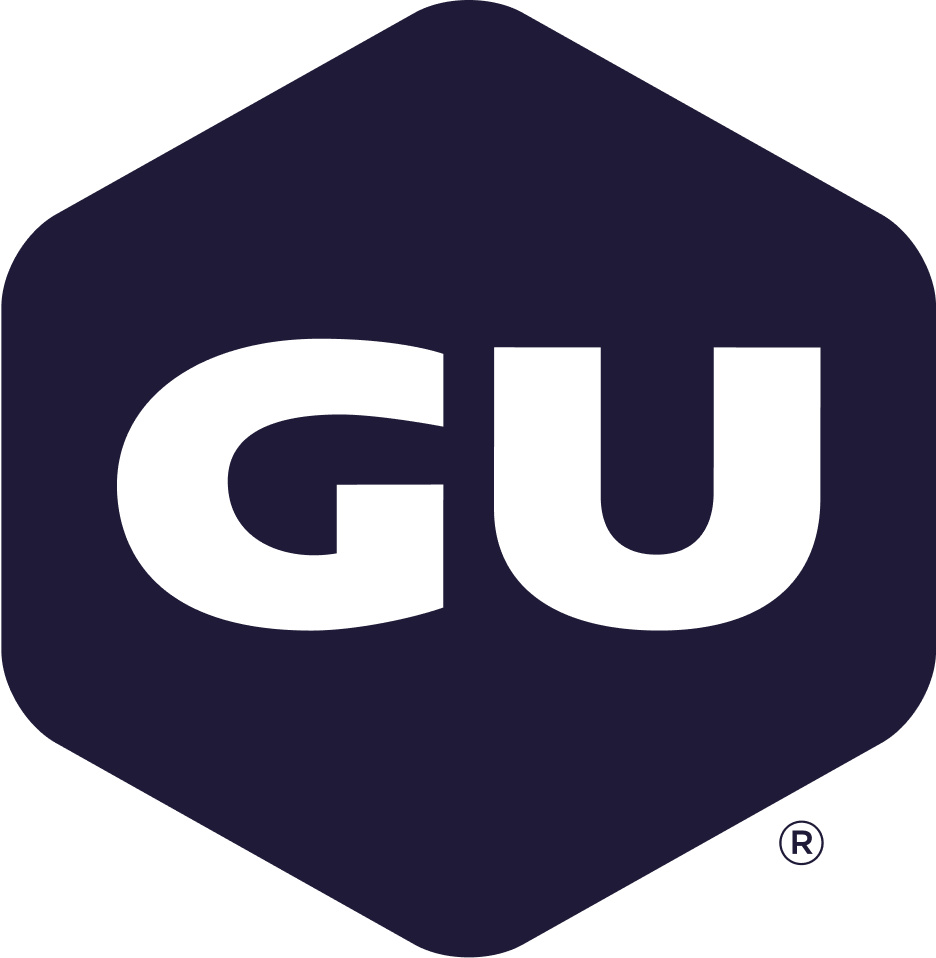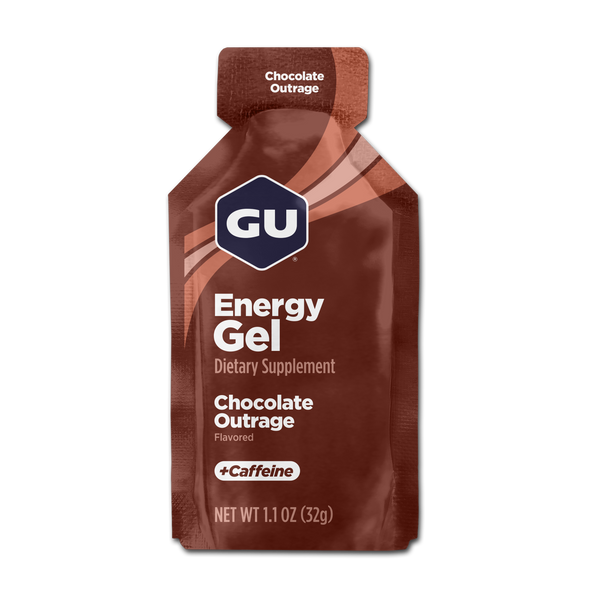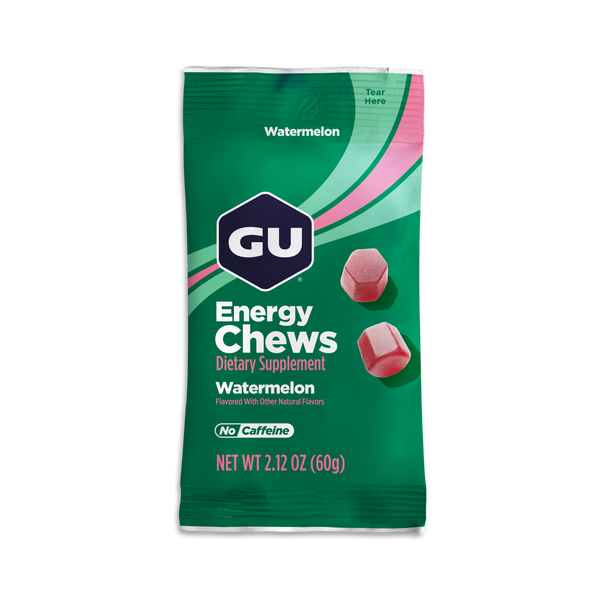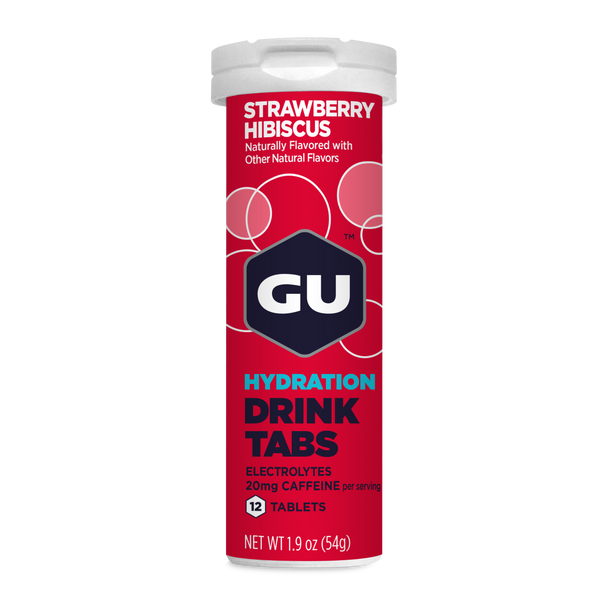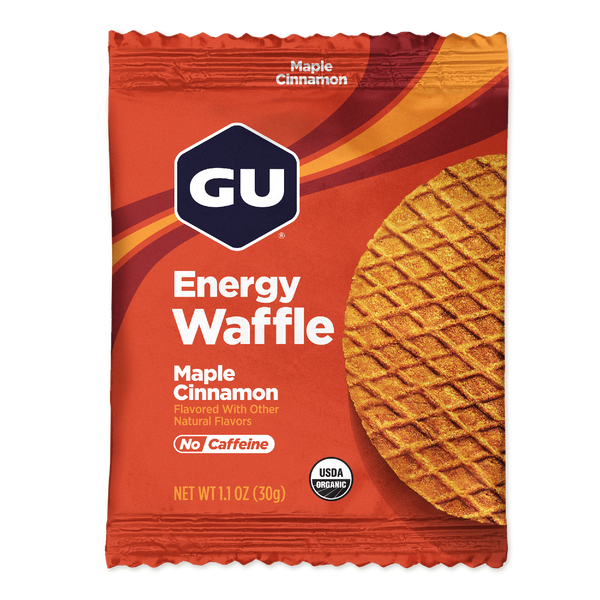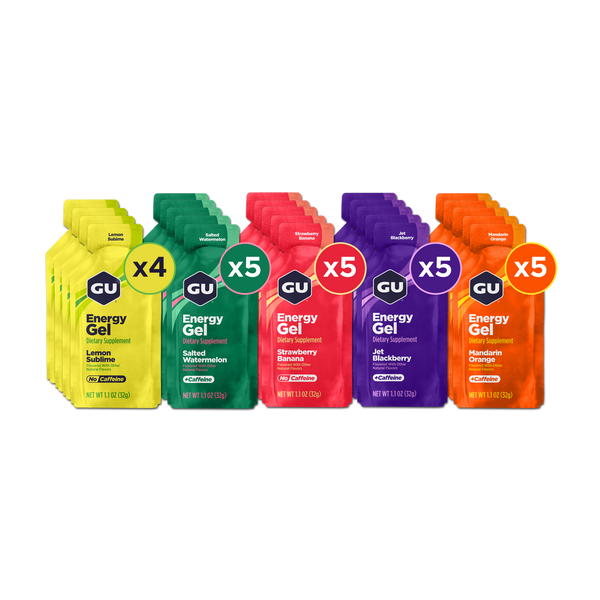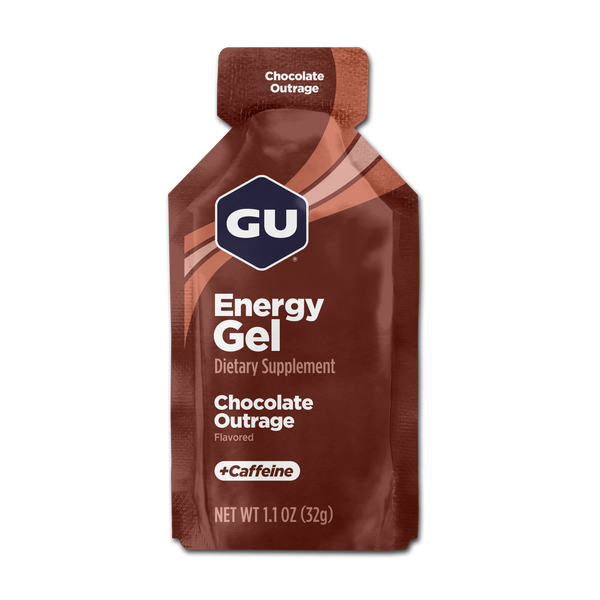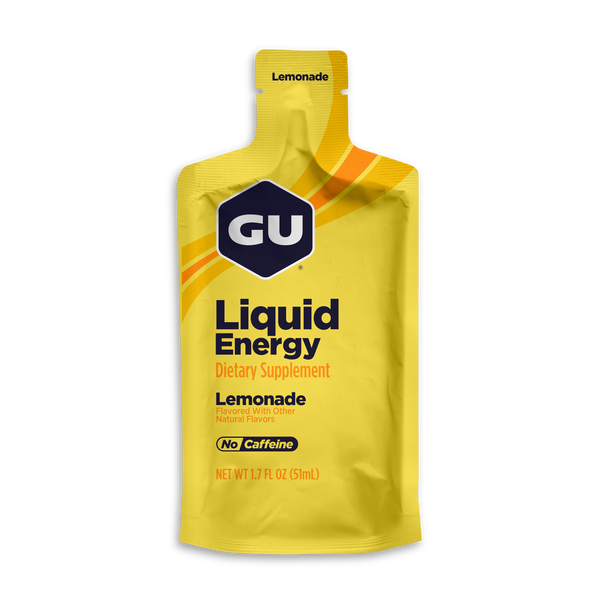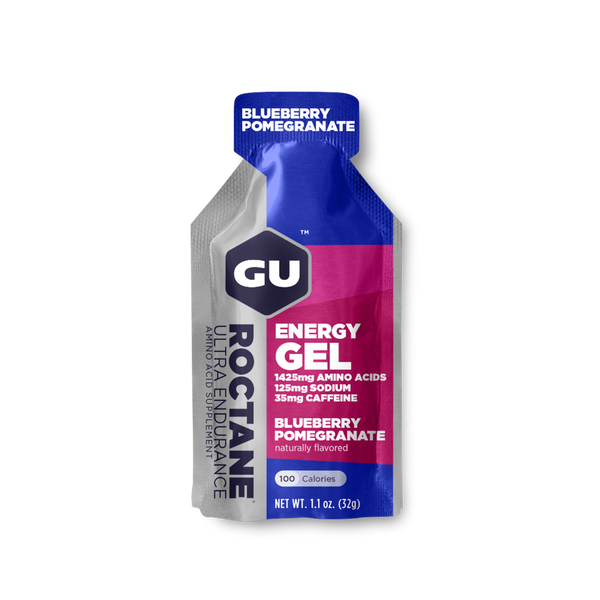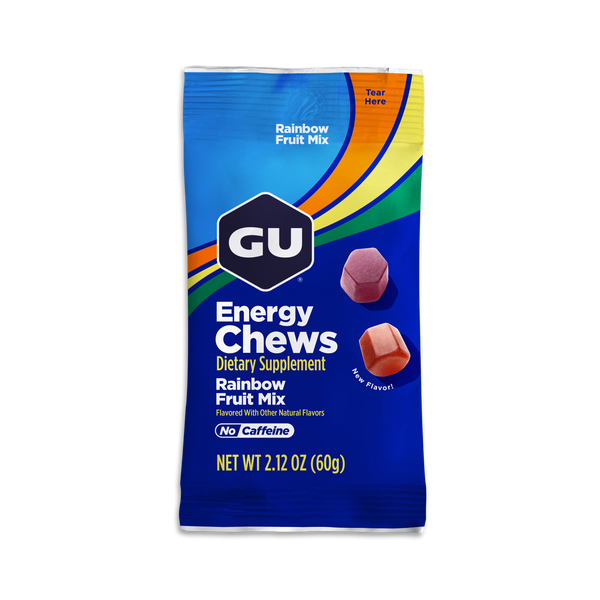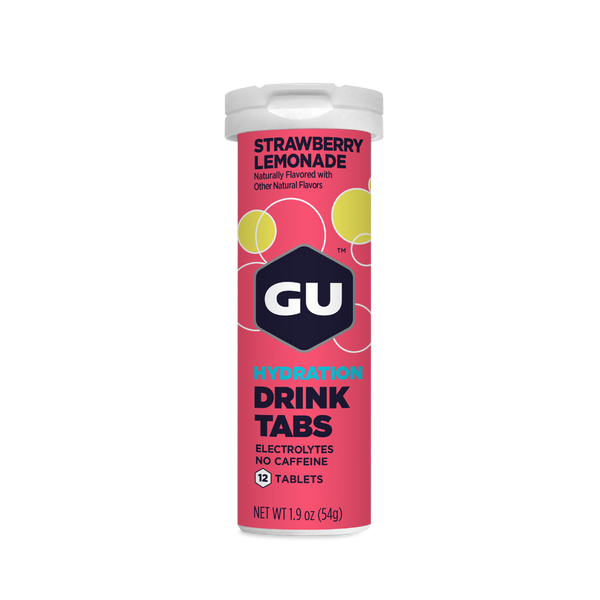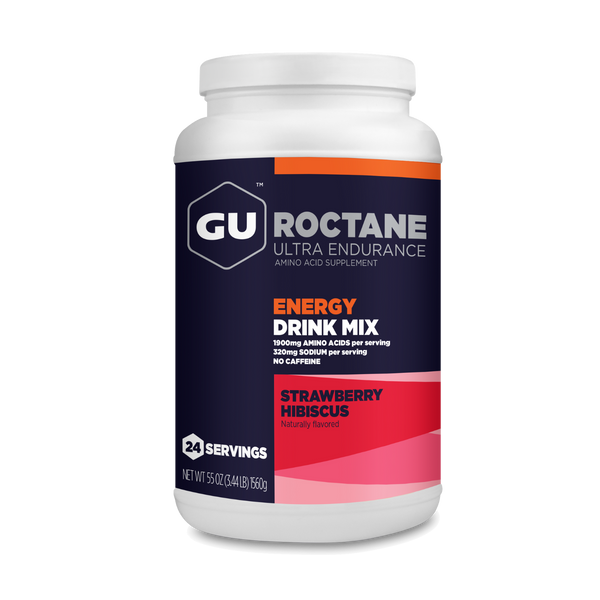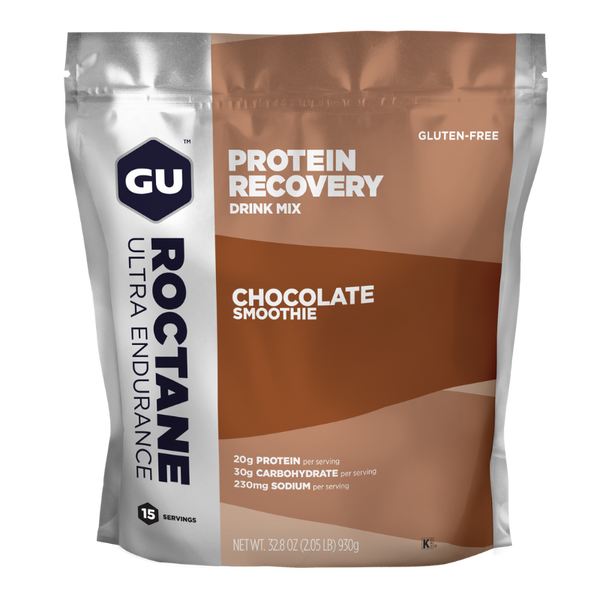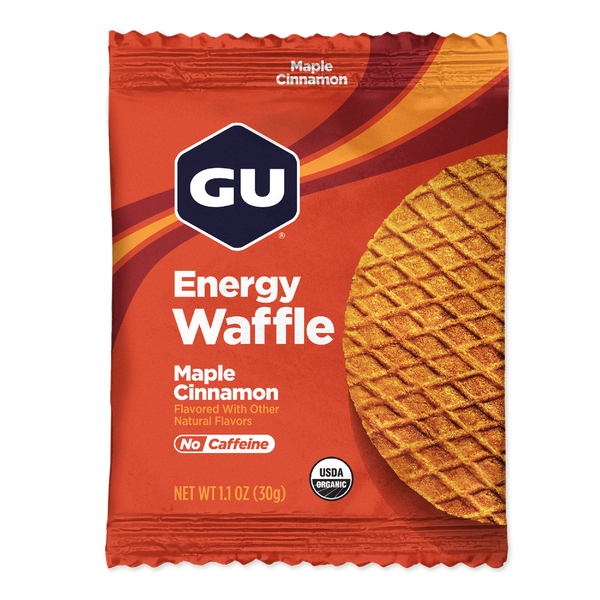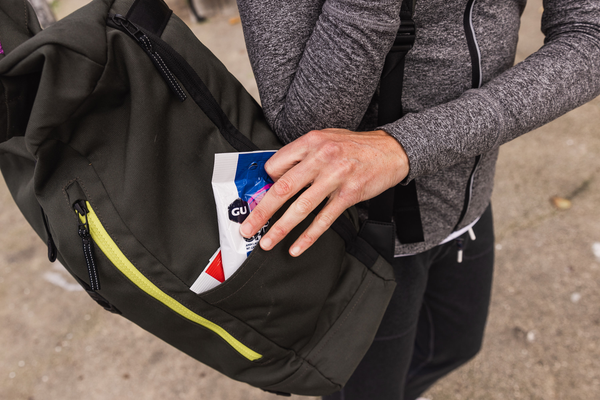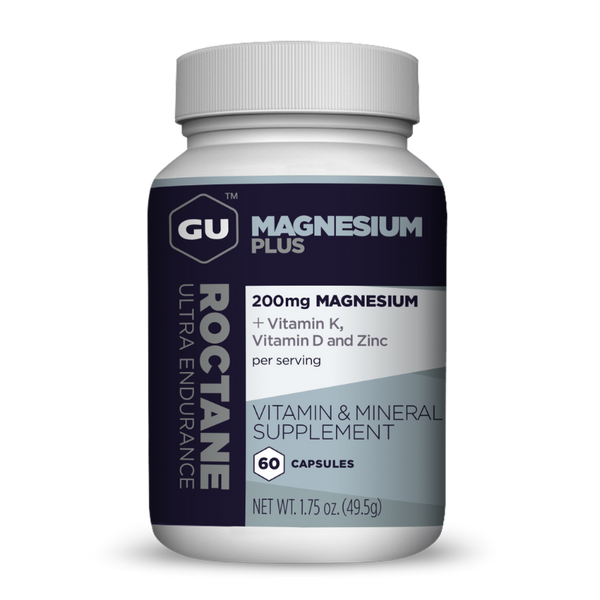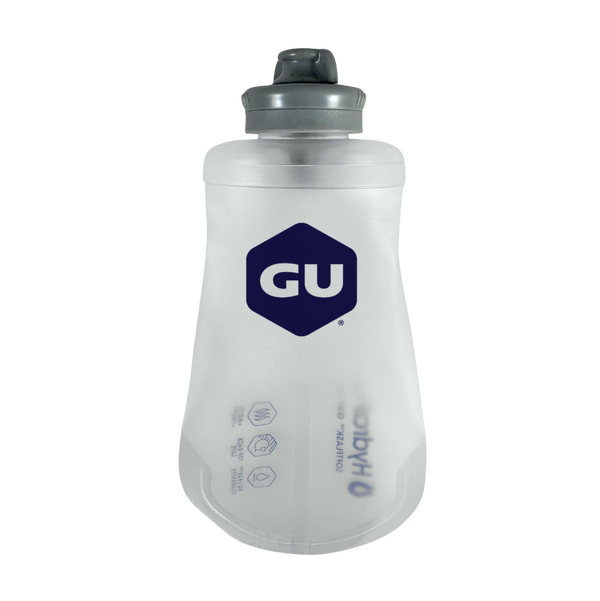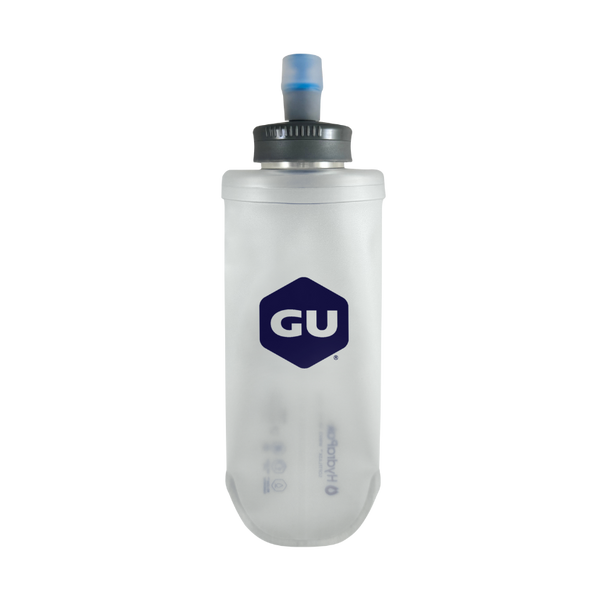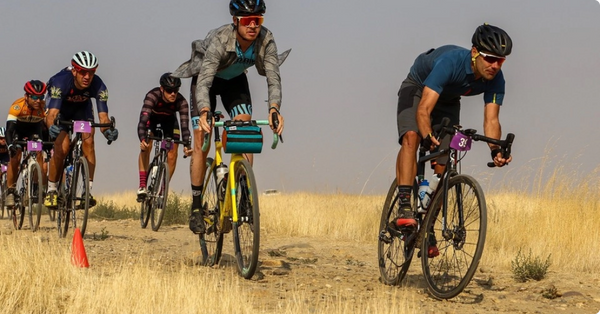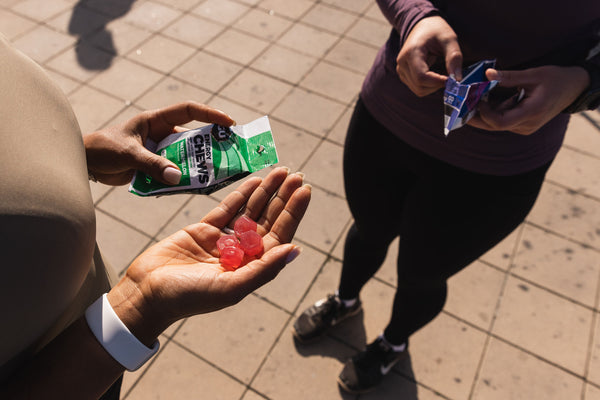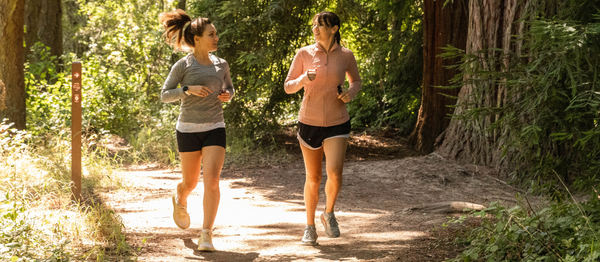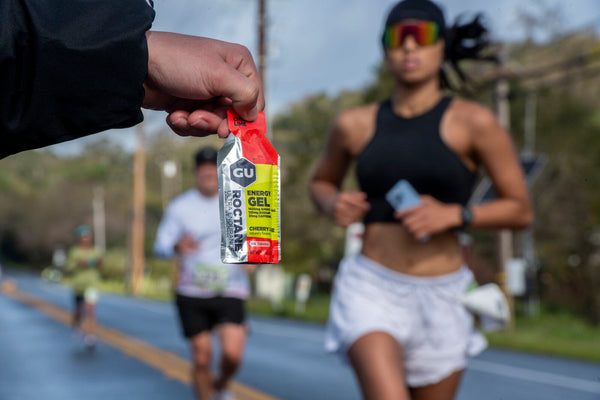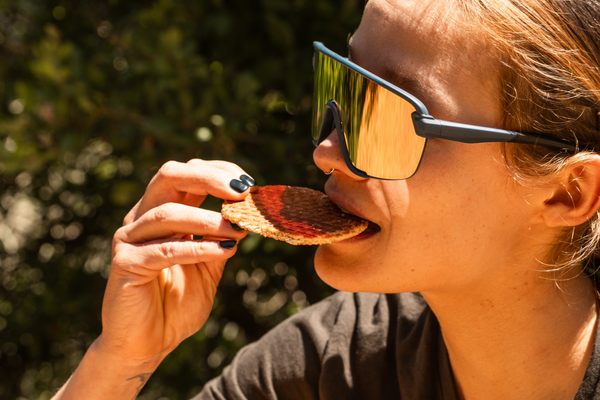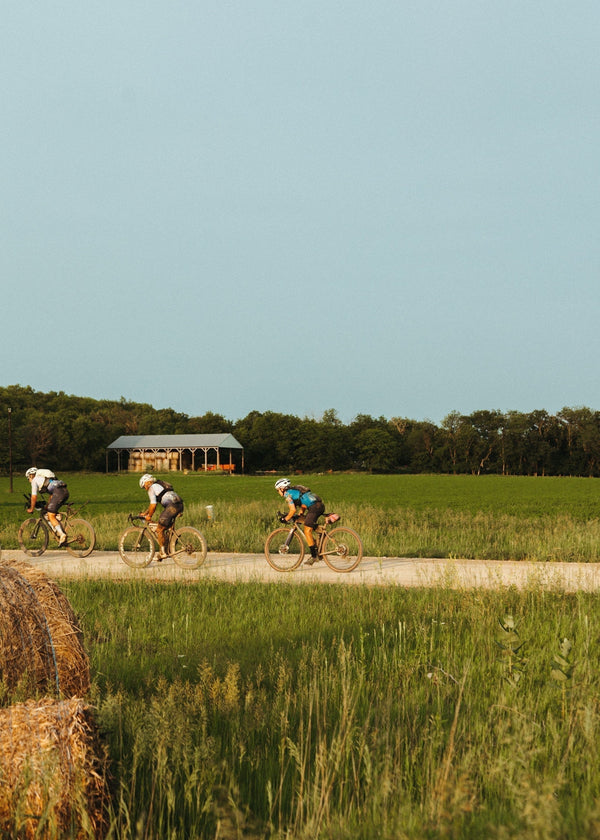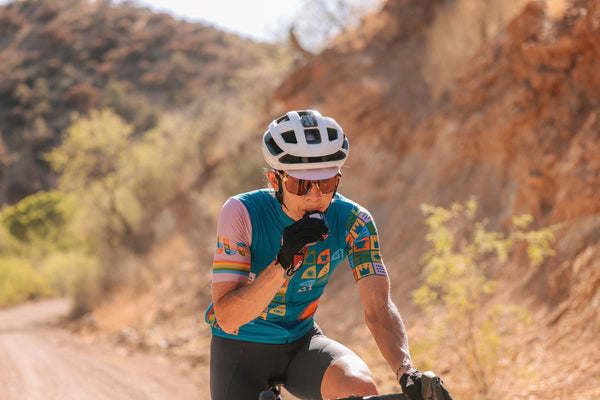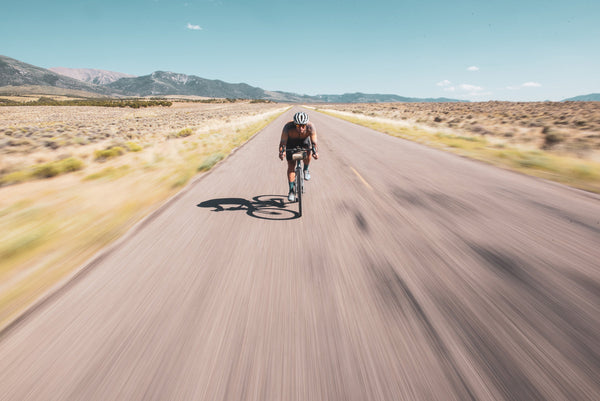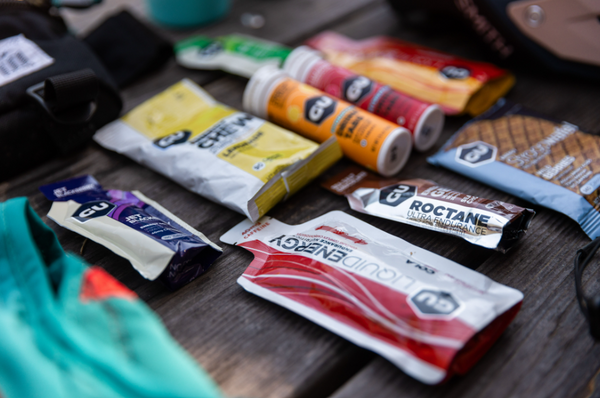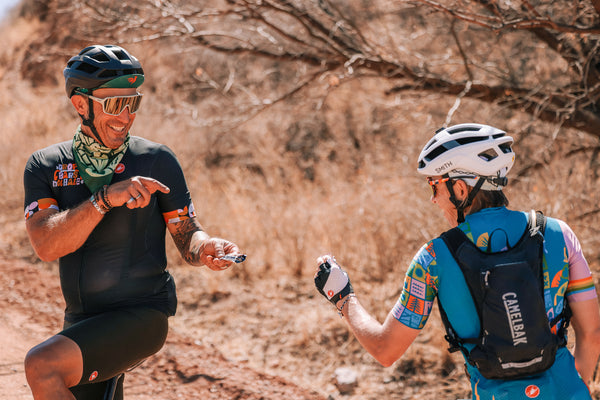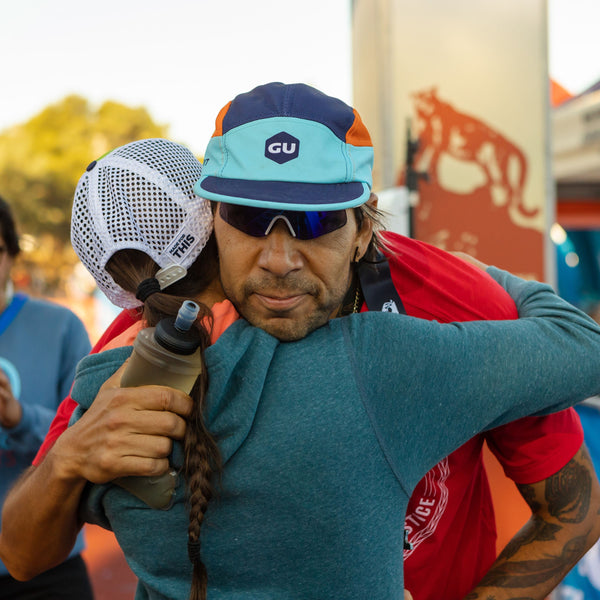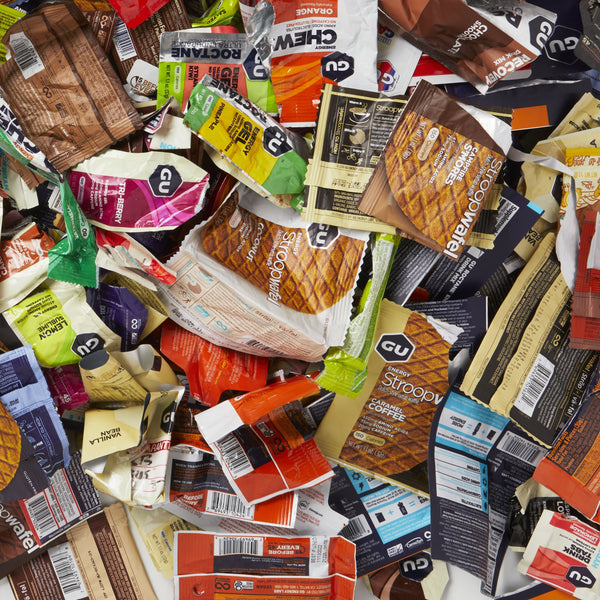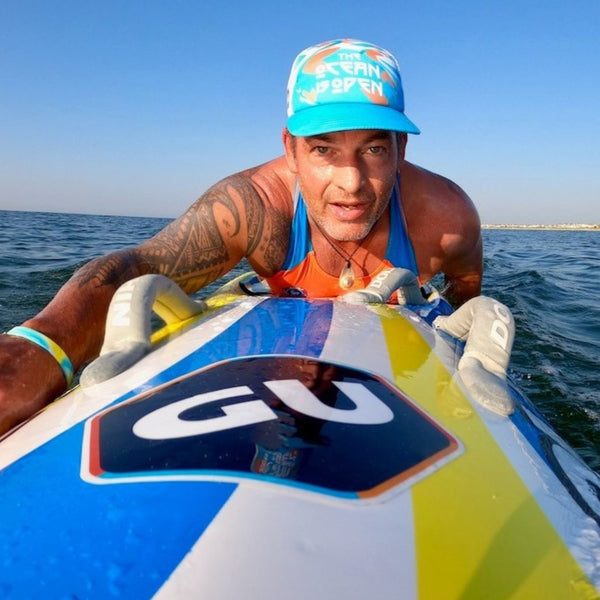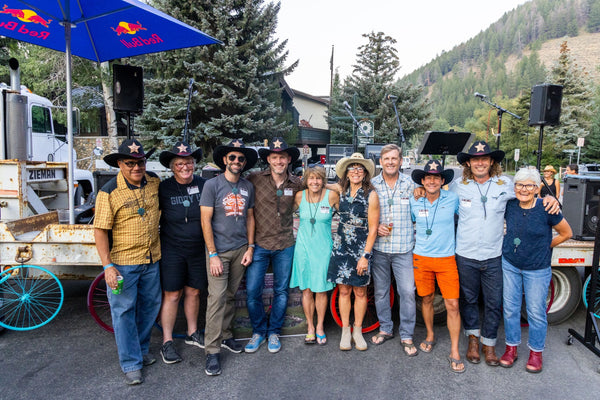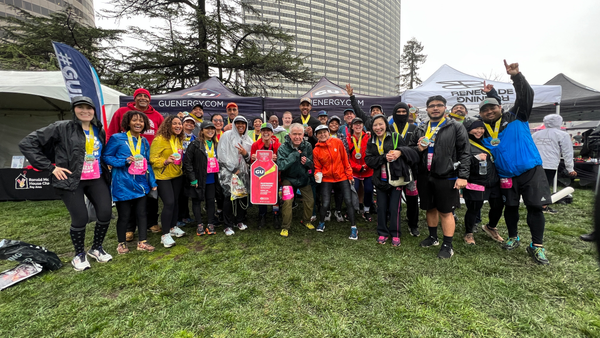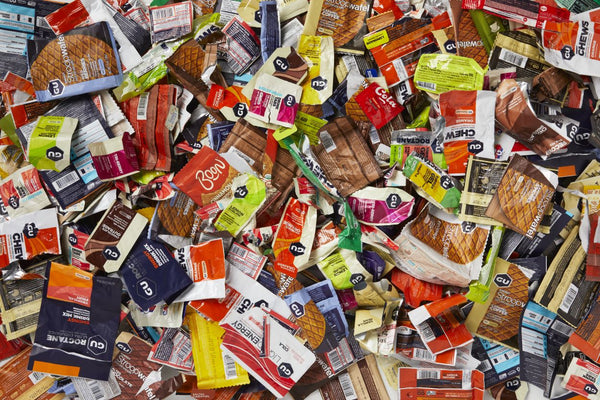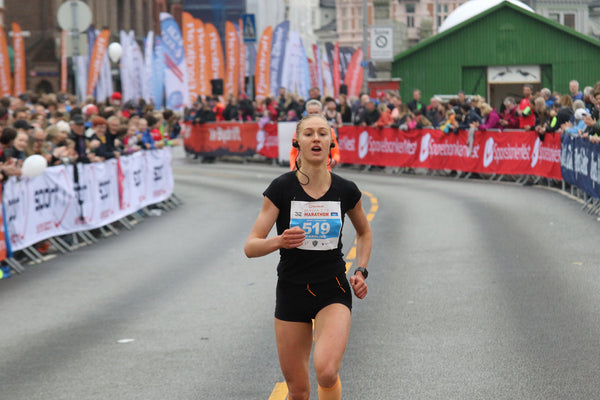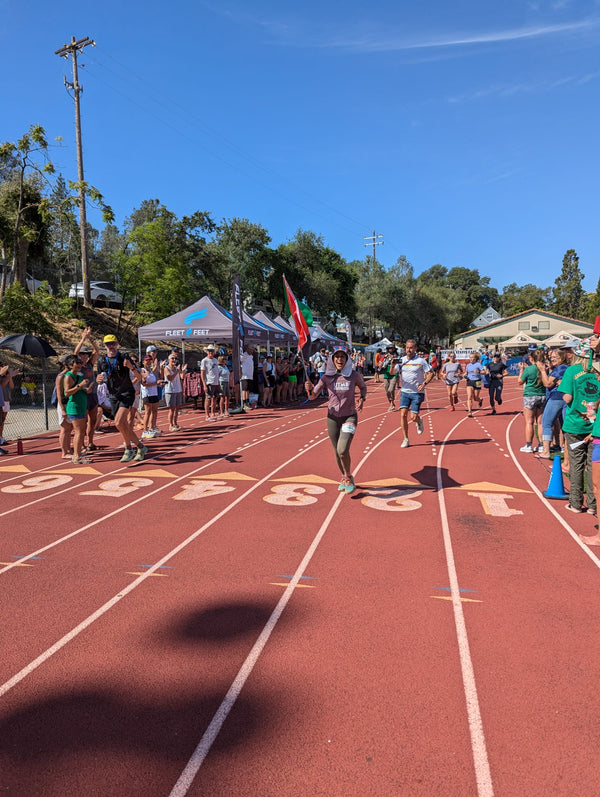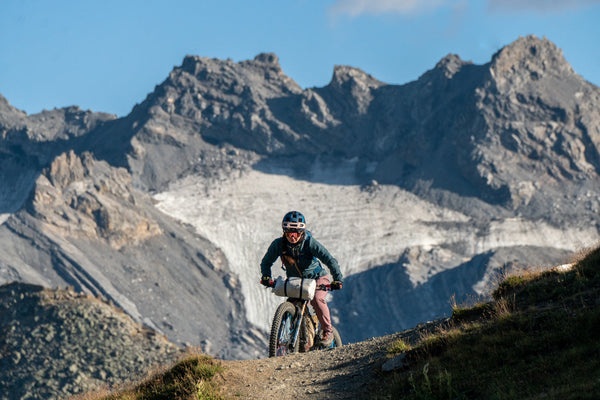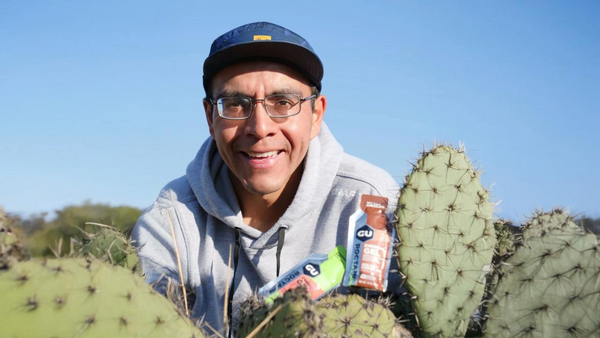The 4th of July is in the rearview mirror and that means it’s almost time for the second year of Alison Mariella Désir’s BIPOC-focused running camps based on the Kenai Peninsula in Alaska. Désir is the author of Running While Black, host of the hit PBS TV show “Out and Back with Alison Mariella Désir,” and a GU Energy Labs ambassador. She started her running camps because she knows firsthand that for people in the BIPOC community to feel they’re welcome in the outdoor community, they need to be actively invited. This year, GU is sponsoring Désir’s camps, and Yuri Hauswald, GU Energy Labs’ Elite Athlete Manager, caught up with Désir to hear about how her relationship with running, and with the outdoors, has evolved over the past few years, who she draws inspiration from, and how she hopes the outdoor industry will continue to invite BIPOC community members into outdoors spaces.
Hauswald: It goes without saying that I’m extremely excited to have this conversation. For folks who are wondering where this conversation came from, it started 4 years ago in Atlanta at the Olympic marathon qualifiers, which were happening that year in February, and I was lucky enough to attend a panel that you were on with some of the other movers and shakers in the outdoor industry. One of those folks was the founder of Oiselle, Sally Bergesen. She was asked about having a seat at the proverbial industry table, which we both know is dominated by white males. And she said, “ F^%K that. We need to build a new table”, meaning the women up there on the stage needed to be the ones to institute meaningful change. And I know that I am sitting with somebody right now who is helping to build that new table for more diverse folks to have a say about what happens in our outdoor industry.
So that was a long-winded way of saying we’ve known each other for 4 years and we’ve had you here at GU HQ to talk about your book, Running While Black. It’s truly an honor and a pleasure to watch what you’re doing as a mom, but also with your outdoor camps and everything else you’re doing to make the outdoor industry more inclusive.
Here's the first question: Your journey to becoming a marathoner really underscores the saying “If you can see it, you can be it.” Can you share your journey to running your first marathon, how it made you feel, and how it changed your life? I know it will resonate with lots of folks who may be thinking about taking that first step.

Alison Mariella Désir: Well, first I want to say thank you Yuri. Our working together truly shows how important building trust is and thinking about the long game. When we met, I think you gave me a pair of GU gloves and the intent in that moment was not, “work with my brand,” it was let’s get to know each other and it has always felt so meaningful and honest and I could say that for the whole GU team, so kudos to you. This is how brand relationships work. It’s about trust and honesty and genuine care for the human, so that is why I’m here.
In terms of how I got started running, it was purely accidental. At the time, 12 years ago, I was very depressed. I was at home, unemployed, on my phone looking at IG and Facebook and just watching people live their lives, because on social media people tend to post only the good stuff. But thankfully one of the things that I saw was a Black guy who was training for a marathon, and he was one of my friends. I never knew that regular people ran marathons. Especially regular Black people. I knew of the Kenyans and the Eritreans and those fast people, and then I knew of skinny white people like a neighbor of mine who had run marathons, but the idea that an average person who looked like me could run a marathon was very new. So, I started following his story and as marathoners do, all we do is talk about the thing that we’re training for, so he was sharing how he was learning so much about himself, he was meeting people, he realized that his body could do more than he ever thought, and that’s what I was really drawn to.
The idea of running a marathon itself was exciting because it was so huge, but the fact that there was this mental transformation for him was what I really wanted for myself. I wanted to get to a different place in my life. So, after following his journey, I signed up for the same marathon. It was the San Diego Rock and Roll marathon, and I experienced everything that he talked about. I realized that I could do things that I never thought I was capable of. I realized that I was in control of my body. There are so many things in the world you’re not in control of, but I was in control of myself and I began to apply that same kind of thinking to areas outside of running, like “How can I use the same strategy of breaking up something very difficult into small parts to get a job, to get the counseling that I need,” and so that first marathon really transformed my life and if it weren’t for my friend Alade Mikken?? I wouldn’t be here honestly.
This idea of representation continues to matter not just for me, but also I realize now that I’m in that position where I’m the person to encourage people to do things that maybe they thought they couldn’t.
Hauswald: You got the inspiration to write your book Running While Black while penning an op-ed following the murder of Ahmaud Arbery. Your book not only exposes how the running industry perpetuates white supremacy—how moving through space isn’t always free to everyone and the marginalization of non-white voices—but more importantly it shines a light on some of the little-known but very influential back runners who helped shape the industry. What are some of the moments and people in Black running history who have had an impact on your personal journey?
Désir: Yeah, I love this question. Actually, I just recently learned of another person that is really important in my journey. There’s this man named Herm Atkins. For 40+ years, he held the title of the fastest African American marathoner in the US. And it turns out that he lives 20 minutes away from me. He went to school in Seattle. He’s now in his 70s and living nearby. His record was upset just two years ago, which is incredible, and I love hearing these stories because they normalize my experience and experiences like Herm’s in these spaces. These are things that we’re told Black people don’t do or we don’t see a lot of representation of, and then it turns out my neighbor is one of the fastest Black Americans to ever run a marathon.
But in addition to him, Ted Corbitt, who is the father of ultra marathoning, has played such a significant role in my life because again, hearing about him let me know that there’s a long history of us doing this. Not only that, we helped build this sport. Ted Corbitt was the first person to solidify the marathon distance with measuring tactics. Before him, a marathon could be 26.3 or 26.1, but he knew that it was really important for the sport to standardize the distance in order to professionalize the sport. He also was a physical therapist and had an incredible knowledge of the body and what the body could do. People like him make it clear to me that we belong in these spaces.
A final name that I’ll say is Marilyn Bevans—the first African American woman to run a sub-three marathon. She’s an incredible black woman who was a contemporary of Kathrine Switzer, and ran with people calling her the N word. She broke all kinds of records and, to this day, she is still a coach and incredibly vibrant and vocal about her role in this sport.
I want more people to know these names. Kathrine Switzer is a friend of mine. She’s awesome, but other people should know Marilyn Bevans, Ted Corbitt, Herm Atkins—all of those names should roll off our tongues.
Hauswald: So for the past year in the Pacific Northwest, you have been exploring it as a part of KCTS 9’s TV show “Out and and Back With Alison Mariella Désir.” What is the goal of this program, what new sports have you tried, and what are some of the topics, some more controversial than others, that you’ve been addressing?

Désir: “Out and Back” is the best thing to ever happen to me. I didn’t see it coming, but I’ll tell a brief story of how I got the show and then answer your questions. So I moved to the Pacific Northwest three years ago and a woman who I only vaguely knew saw on social media that I was moving and reached out to me because she had this role at Cascade PBS and she knew of my work and wanted to know if I wanted to host my own TV show. And I didn’t really think she was serious but I’m a child of MTV News and I was like, “Do I want to host a show? Hell Yea!” So I put together this pitch that was telling my story of moving to the Pacific Northwest and wanting to connect with people who look like me in the outdoors and tell their stories. That’s what the show is, “Out and Back with Alison Mariella Désir.”
There’s also an emphasis on the fact that we’re not new to these spaces. Again, we may not be talked about or shown in these spaces, but Black indigenous people of color have been in the outdoors since time immemorial and there would be no outdoors if we hadn’t been stewards of it. I have done so many amazing things on the show. It’s hard to say if there’s a single favorite thing I’ve done, but one of the things that I love is fly fishing, which I would not have imagined because again when you see fly fishing you see middle-aged white men in the water doing seemingly nothing. But when I got out there to do it, it’s so meditative.
Every piece of it makes you pause and take in the scenery around you. I’m preparing to climb Kilimanjaro, which I know we're going to talk about, but I would not have seen myself as capable of climbing Kilimanjaro if it weren’t for the show. Things that seemed difficult or impossible, are now things that I can totally wrap my mind around.
Hauswald: I have friends who do it and there is a zen meditative piece to it and there’s a beautiful ballet and art of you and the reel. I’ve also really seen you lean into snowboarding and surfing this past year on the show as well. I love following your snowboarding.
Désir: That’s wild to me because the sports I’ve done have not been ones that involved equipment, but man, I really love snowboarding. And that’s something that hopefully I can continue. Next season I want to take lessons, because there’s something so cool about surfing either on snow or water. In the surfing lesson on the show, what I loved about that was that the person who taught me how to surf was sharing that surfing doesn’t have to look a certain way. We have this expectation that you have to get up and look cool, but the instructor told me that that’s not what surfing is. Surfing is really just you being in sync with the water and catching the energy of the water, and it doesn’t have to look a certain way.
Hauswald: I also loved watching your snowboarding journeys on IG, and speaking of snow, because I imagine you will encounter snow on this next adventure that you’re about to embark on. I want to hear about your upcoming trip. By the time folks see this interview, you will have been a part of a historic journey to Kilimanjaro. Can you share how this opportunity came to be, what your training has consisted of, and what you’re most excited about?

Désir: This all came about from a message via my website allisonmdesir.com. I’ve gotten some of the most incredible opportunities that way. Several years ago Vogue magazine reached out to me and I was in Vogue because of this outreach. Similarly, a person who has a guiding company—she’s a Black woman from Chicago partnered with a Tanzanian man who’s been a long time guide—they partnered to create this company that really is about ensuring that porters and folks on the expedition are treated well and have a good time. Any expedition is not possible without the porters, the people who lead you on the way, but oftentimes those people aren’t treated well so I hear. She’s committed to ensuring that everyone has a great time.
She reached out and asked me, “Would you ever want to climb Kilimanjaro?” and I was like, “Yes!” And she told me about this trip that she was planning and was hoping to get Black women to climb Kilimanjaro because what she sees often—she does several climbs a year—and there are lots of people who climb Kilimanjaro and it’s mostly white people.
And that’s not anybody’s fault. It’s a wonderful thing that people are climbing Kilimanjaro, but there’s not as much exposure or opportunity for folks who look like me. So she was putting together this expedition of all Black women in an attempt to get the most amount of Black women to the summit and set the world record of the most Black women on the summit. And so I said yes, not really knowing what that would entail. But like everything else in my life, I say yes and then the details reveal themselves.
This yes led me to explore Washington State in a way that I would not have done. I’m climbing everything—every week I climb 10,000ft. of elevation. I’m climbing Mount St. Helens next weekend, which is something I never thought I would say. It’s really amazing when you get that invitation. And that’s what all of this is about. We can say, “The outdoors is for everyone,” but that is meaningless. What we really need is welcome to the outdoors—an invitation to be a part of something. One day I will do a gravel bike race with you, Yuri. It’s not for lack of trying. It’s just for lack of scheduling, but you have extended this warm invitation and that is what’s really needed, and I can’t wait.

I’m sleeping in an altitude tent and I have to sleep in my own little room because my husband’s not interested in joining in on that particular part of my training. I sleep at 9,000 ft. every night—like who am I?! But I can’t wait. And you never know with these expeditions. You can do everything right and then your body is your body. So whether I make it to the top or not, I’m just thrilled for this experience.
Hauswald: Can you tell us a little about your Alaska camps? That’s one part of our relationship—scholarships for you Alaska camp that is in August if I’m remembering correctly. That’s also an invitation for folks to come to the outdoors.
Désir: Like I said, this invitation to me came via my website, so there’s a theme here. If you want to reach out to me, hit me up on my website. So, this woman asked me not only if I wanted to go to Alaska but if I wanted to lead trips in Alaska. And when I was living in New York, Alaska seemed like the end of the earth. It’s so far away. But now on the West Coast, I have a very different perspective, partially because I’m closer to places like Alaska, but also because my world has widened to realize that I can go anywhere and do anything. So I said yes and organized a trip last year of BIPOC folks to explore Alaska and it was really special, because again talking about this invitation, there’s not a lot of Black and Brown folks in trail running and Ultra trail running and to have this invitation to be a part of something where you didn’t have to feel like you were the only one, you didn’t have to feel like you were silly, where you can have conversations about what it meant to be in these spaces, it’s really powerful.
Something that was really cool and unexpected—I was actually on NPR Alaska before the retreat, so when I was in Alaska, people everywhere were recognizing me. I was more famous in Alaska than anywhere else. And based on the success of the first year, GU is sponsoring the trips and it’s really great. We have a BIPOC focus, but everyone is welcome to be a part of it and I’m really excited to visit a different part of Alaska this year and knowing now that Alaska is a place that —I won’t say home because that’s a little bit much—but it’s a place of comfort for me. It’s one of the most uninhabitable, uncomfortable places, but it feels warm and comfortable for me and it’s a place I want to invite other people to.
Last year a woman joined us and it was her very first time doing anything on the trail. If you saw her on the trail you would not have believed that. She is someone who, if she wanted to run trail races she would be ripping and winning, and that’s really cool. You invite people to a space, you give them the tools and the confidence and then who knows what they’ll do with it. That’s how the outdoor industry will become more expansive, when we give people the opportunity to thrive.
